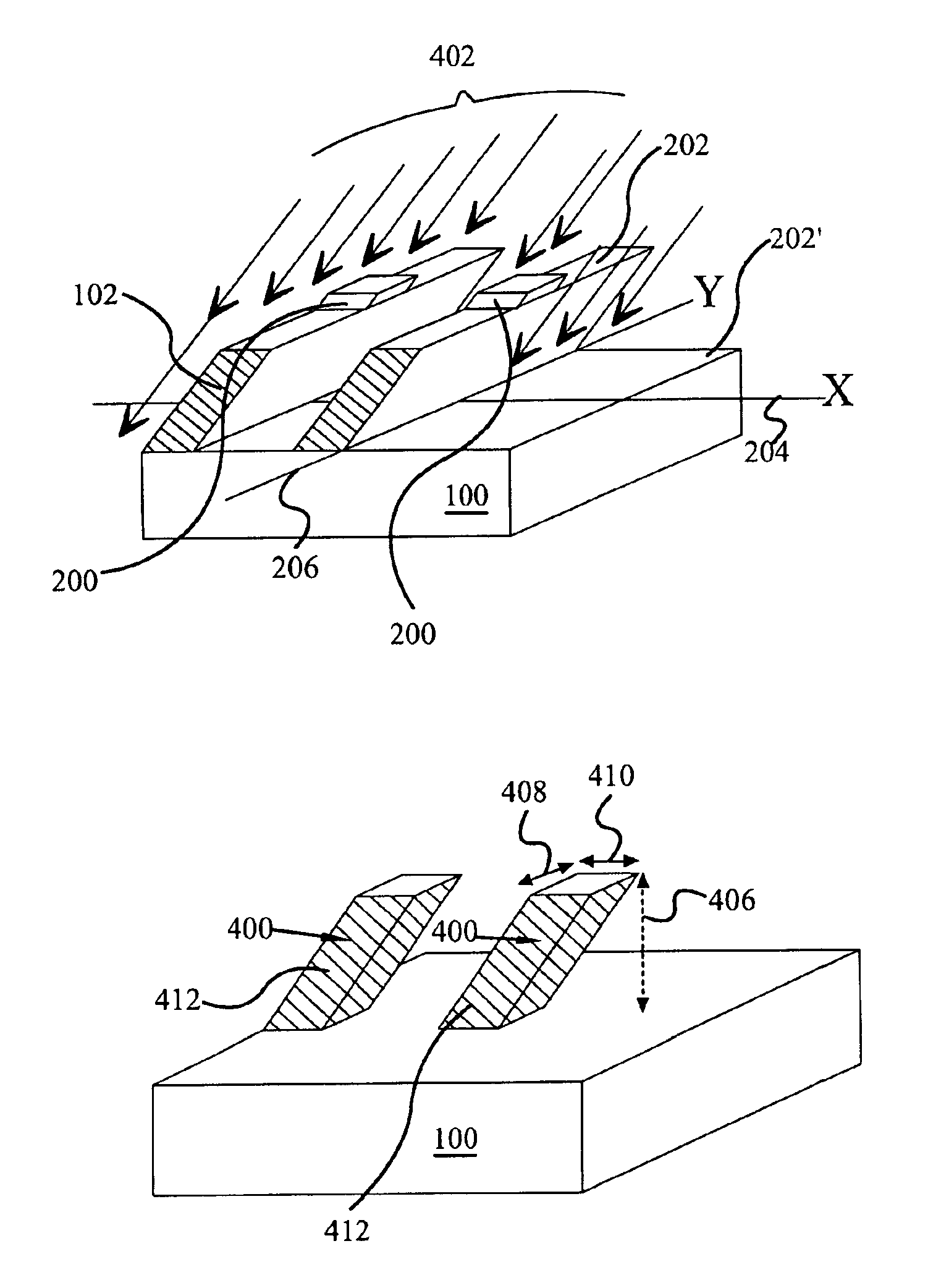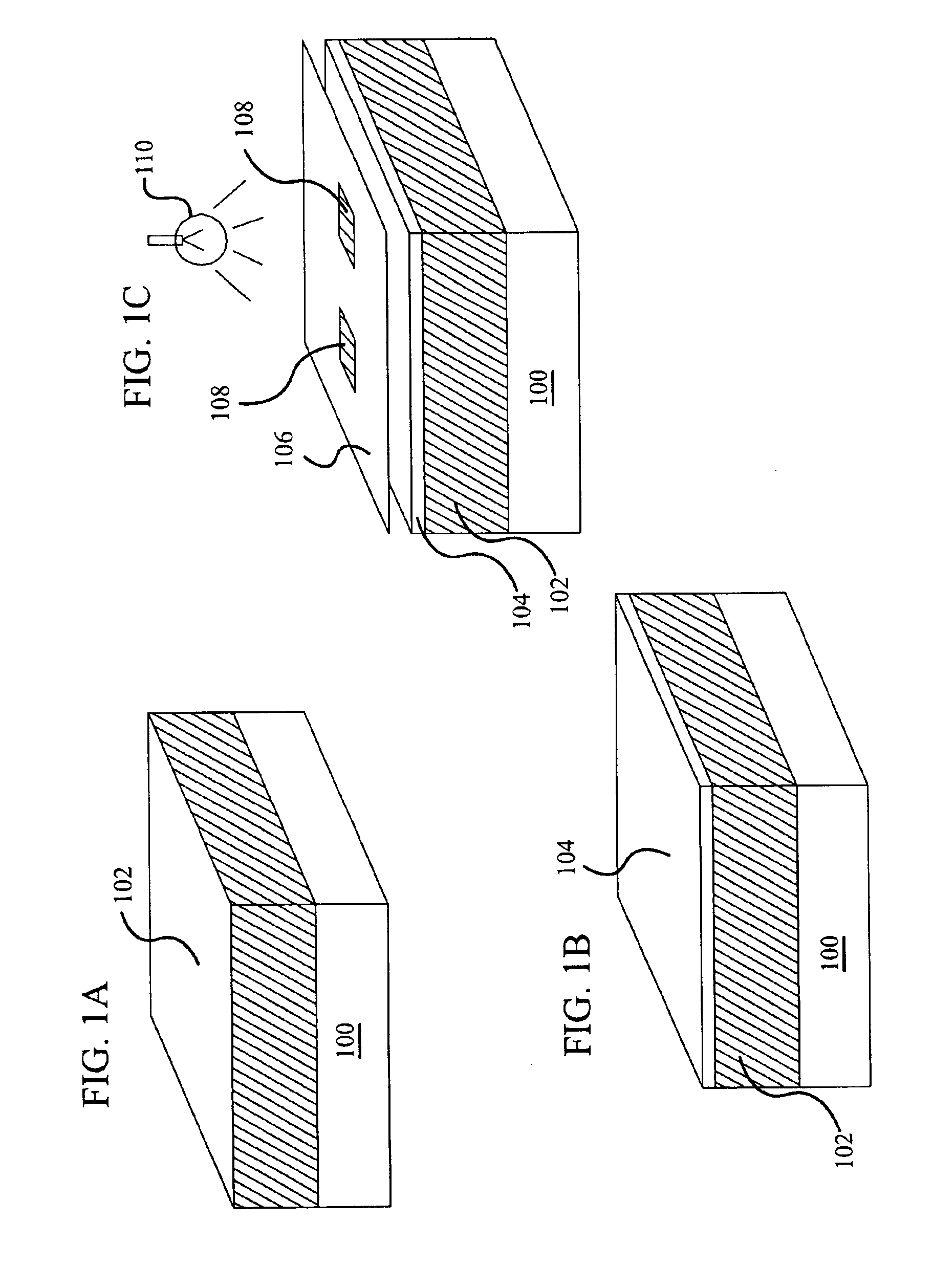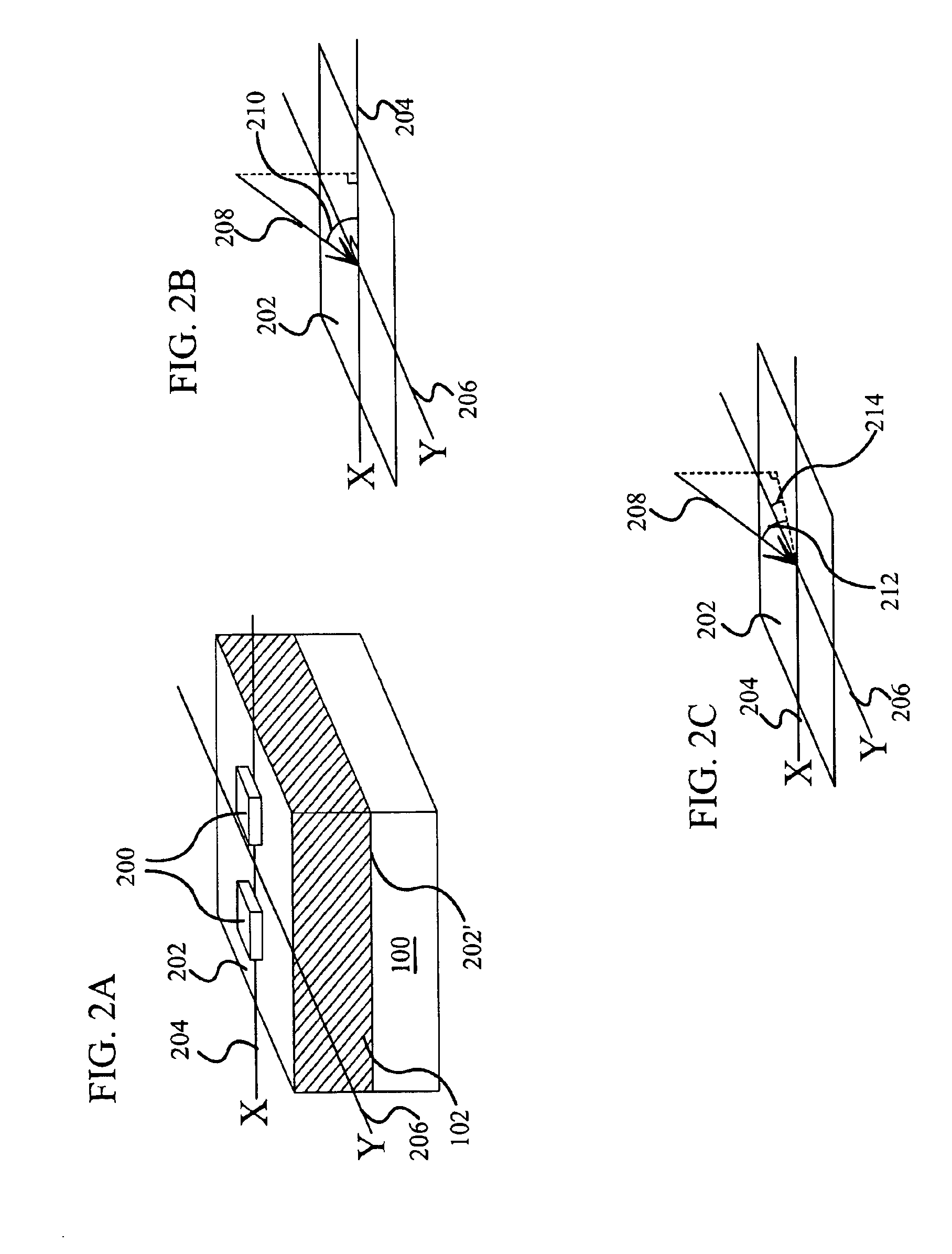Process for making angled features for nanolithography and nanoimprinting
a nanolithography and nanoimprinting technology, applied in the field of semiconductor device manufacturing, can solve the problems of unsatisfactory perpendicular structure, frustrated production to date, and inability to achieve consistent precise angles, and achieve the effect of facilitating the insertion and extraction of the nanoimprinting templa
- Summary
- Abstract
- Description
- Claims
- Application Information
AI Technical Summary
Benefits of technology
Problems solved by technology
Method used
Image
Examples
Embodiment Construction
[0020]Before proceeding with the detailed description, it is to be appreciated that the present invention is not limited to use or application with a specific type of magnetic memory. Thus, although the present invention is, for the convenience of explanation, depicted and described with respect to typical exemplary embodiments, it will be appreciated that this invention may be applied with other types of magnetic memory.
[0021]Referring now to the drawings, FIGS. 1 through 4 conceptually illustrate an ion etching (also known as plasma etching) process for making angled features according to an embodiment of the present invention. It will be appreciated that the described process need not be performed in the order in which process for providing it is herein described, but that this description is merely exemplary of one preferred method of fabricating nano-scale angled features.
[0022]In at least one embodiment, the fabrication process may be commenced upon a semiconductor substrate w...
PUM
| Property | Measurement | Unit |
|---|---|---|
| aspect ratio | aaaaa | aaaaa |
| aspect ratio | aaaaa | aaaaa |
| angle | aaaaa | aaaaa |
Abstract
Description
Claims
Application Information
 Login to View More
Login to View More - R&D
- Intellectual Property
- Life Sciences
- Materials
- Tech Scout
- Unparalleled Data Quality
- Higher Quality Content
- 60% Fewer Hallucinations
Browse by: Latest US Patents, China's latest patents, Technical Efficacy Thesaurus, Application Domain, Technology Topic, Popular Technical Reports.
© 2025 PatSnap. All rights reserved.Legal|Privacy policy|Modern Slavery Act Transparency Statement|Sitemap|About US| Contact US: help@patsnap.com



